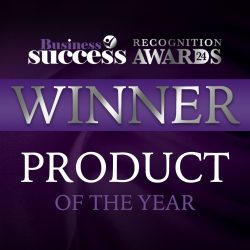When it comes to protecting your brand, trade marks are one of the most powerful tools available. But what happens when a trade marked brand faces potential misuse by another company in a different industry? A recent case involving Louis Vuitton demonstrates how far-reaching the protection of a well-established trade mark can be, especially when reputation is at stake.
This case highlights the importance of maintaining and defending a brand’s identity, even across unrelated sectors. Let’s explore how Louis Vuitton successfully protected its famous “LV” mark from what was seen as a potential threat.
Background of the Case
Louis Vuitton Malletier, the globally recognised luxury brand, opposed the registration of a figurative mark “LV LA VAPEUR” in the EU. The opposition was based on Louis Vuitton’s existing “LV” trade mark, which covers goods in Classes 16, 18, and 25 (including luxury items such as handbags and clothing). The contested mark, however, sought registration in Classes 34 and 35, covering tobacco-related products and business services.
Despite the different industries involved, Louis Vuitton argued that the similarity between the marks could cause confusion and take unfair advantage of its brand’s strong reputation in the luxury goods market.
Why Reputation Matters in Trade Mark Law
In this case, the European Union Intellectual Property Office (EUIPO) had to decide whether the use of the “LV LA VAPEUR” mark would harm Louis Vuitton’s well-established brand. Under Article 8(5) of the EU Trade Mark Regulation, a brand owner with a reputable trade mark can oppose the registration of a similar mark, even if it’s for dissimilar goods or services, provided there is a risk of unfair advantage or damage to the brand’s reputation.
The key factor here is reputation. Louis Vuitton’s “LV” mark is one of the most recognised luxury brands in the world, and it has built this reputation through decades of consistent branding and substantial investment. As part of the case, Louis Vuitton presented extensive evidence of its reputation, including market surveys, sales figures, and brand recognition across the European Union.
Decision and Rationale
The EUIPO agreed with Louis Vuitton’s argument. The Opposition Division found that the “LV LA VAPEUR” mark could indeed cause a mental link between the two brands in the minds of consumers. While luxury fashion and tobacco products are not directly related, there’s a perception that luxury brands might expand into lifestyle markets, including products like fragrances or accessories.
The decision concluded that the use of the “LV LA VAPEUR” mark could take unfair advantage of the “LV” brand’s strong reputation. As a result, the application for the new mark was rejected entirely.
The Takeaway for Businesses
This case demonstrates the heightened level of protection that a reputable trade mark can provide, even beyond its core product categories. Here are a few key lessons for business owners looking to protect their own trade marks:
- Establish and Maintain a Strong Brand: A well-protected brand is built over time through consistent use, marketing, and investment. The stronger your reputation, the more protection your brand enjoys under trade mark law, even against dissimilar goods or services.
- Monitor Trade Mark Applications: Even if a new application is in a different industry, it’s important to monitor trade mark filings to ensure there’s no potential overlap or unfair association with your brand.
- Actively Defend Your Trade Mark: If a similar mark is filed, don’t hesitate to take action. As seen in this case, reputation is a powerful tool for protecting your intellectual property and preventing others from benefiting unfairly from your brand’s success.
- Understand the Power of Article 8(5): For businesses operating in the European Union, this article provides an essential layer of protection. If your brand has a significant reputation, you can prevent others from using similar marks, even in unrelated sectors.
How National Business Register Can Help
At National Business Register, we understand the complexities of trade mark law and the importance of protecting your brand’s identity. Whether you’re looking to register a trade mark, conduct a thorough search to avoid potential conflicts, or defend your brand against misuse, we can provide expert advice and support. As a registered agent of the Intellectual Property Office, we offer a range of services tailored to your business needs, helping you navigate the trade mark registration process and safeguard your intellectual property for the long term.
Get in touch today by calling 0800 069 9090 or emailing Info@nbrg.co.uk..


